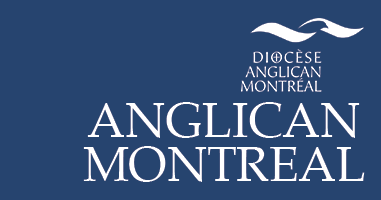In 1990, an Anglican priest in Zimbabwe received a letter bomb in a religious magazine. It cost him both hands and one eye, and set off reverberations that are still being felt around the world.
The recipient of the bomb was Father Michael Lapsley, a member of the Anglican religious order, the Society of the Sacred Mission, and an outspoken opponent of the South African Apartheid regime.
The immediate aftermath of the bombing was, of course, a time of unimaginable agony, physical, psychological, and spiritual. The long-term result of the ordeal was the founding of The Institute for the Healing of Memories, which now has a presence on every continent.
During Holy Week and Easter of this year, Michael Lapsley visited Quebec and Nunavik. His visit had an indigenous focus and included meetings with First Nations and Inuit leaders and groups, in the Montreal area and in the North.
He and his assistant, Philani Dlamini, spent a day at Waseskun, an Indigenous healing centre, which long-time cathedral parishioner Barbara Malloch was instrumental in establishing. Father Michael also engaged in a public dialogue with Tom Dearhouse, elder and knowledge-keeper of the Kanien’kehá:ka (Mohawk) community of Kahnawà:ke. In addition, he found time to meet with theology students and professors at McGill, and with local leaders in the Jewish and Palestinian communities in Montreal who are working towards peace in Gaza.
On Good Friday, at the Church of the Ascension in West Brome, Father Michael was invited by the Venerable Tim Smart, and Father Tyson Rosberg to offer a reflection on the readings for the day. He talked about wounds. He spoke of the way that wounds can be healed, and be healing, leaving scars that can draw us closer to each other and to God.
But he also spoke of the way wounds can fester and poison us from within. He reminded us that this is true, not just of physical wounds, but of psychological and spiritual wounds. If our wounds are cleaned of toxins, of bitterness, resentment and hatred, then we are freed to become wounded healers, following in the footsteps of our Lord. If they are left untended, however, these toxins will destroy us.
They may also lead us to destroy others because, in the absence of healing, the victim often becomes the victimizer, and the cycle of violence continues. We wound each other, and we wound our mother Earth.
In earlier comments on Truth and Reconciliation, Fr Lapsley encouraged churches to contribute to the healing process by creating “safe spaces” where people can “absolutely and truly hear each other’s pain and listen with respect.”
He adds, “People not only need to listen to the voices of victims; they also need to talk about issues of denial, ignorance and the role of guilt and shame.” (Anglican Journal, 2011.)
The morning after his visit to the Townships, Father Lapsley and Philani were joined by the Venerable Travis Enright, Archdeacon for Reconciliation and Decolonization. Ven. Enright had flown overnight from Edmonton to fly with us to the Northern Village of Kuujjuaq, in Nunavik. There we were welcomed by the Inuit working group who had organized Fr Lapsley’s Northern itinerary.
On Sunday morning, in the Church of St Stephen’s, Kuujjuaq, Father Michael was graciously received by Bishop Benjamin Arreak, and invited to offer an Easter reflection. He talked about love, forgiveness, and new life.
Father Lapsley emphasised that forgiving does not mean giving up the fight for justice. Rather, forgiving ensures that the fight is based not on hatred but on compassion. He recalled that for him, giving up the sense of bitterness and betrayal became possible because he was surrounded by love – the love of God, and of the people who prayed for him and sent him messages of support during his recovery. He remembers in particular a bundle of paintings that school children in North Bay, Ontario (Canada) had sent to the hospital where he was recovering. My room, he recalls, “was papered with love.”
As he recovered, Father Lapsley became committed to ensuring that others had the same opportunity to tell their story, and to have it heard, acknowledged and believed. He approaches pain, guilt or grief not as forms of illness or pathology, but as normal responses to abnormal and tragic situations. Father Lapsley explains that pain, when shared, can bring people together. It can foster a deeper sense of connection to each other and the whole human family.
Of course some wounds will require further, more clinical, intervention. But acknowledgement, Father Michael explains, is a first step towards healing, a first step towards forgiveness. He emphasised, however, that forgiving does not mean giving up the fight for justice. Rather, forgiving ensures that the fight is based not on hatred but on compassion.
Apparently, this message resonated with the Kuujjuaq congregation, most of whom turned up at the town hall on Sunday afternoon to hear more. There followed a wonderful week of meetings, workshops, laughter, tears, and prayers.
The highlight of the week was a three-day Healing of Memories Workshop, in which we were all participants together clinicians, clergy, and laity, Inuit, Cree, African and European together, from all walks of life. It was a space in which love and acceptance were palpable, respect and safety were ensured.
Healing of Memories workshops promise participants one step toward healing. In order to fulfil that promise, the workshops draw deeply upon theological insights and clinical training. At their core, however, are the principles of Restorative Justice. As Estelle Drouvin, Director of the Restorative Justice Centre CSJR, explained in an interview with Radio Canada, the workshops “deal with collective memory and the way it affects people’s lives. This is what links them to the restorative justice model, which considers that a crime is not just a matter for the perpetrator and the victim, but for society as a whole.”
During the workshops, Father Lapsley challenged us to keep this bigger picture in mind. How has the history of my country and my people affected me? How has the history of my parents affected me? How has my relationship with a faith community affected me, for good or for ill? What did I do? What was done to me? What did I fail to do?
At the end of the workshop, people reflected on their experience. One of the young women in my group explained, in Inuktitut, that it was the first time in her life she had “felt important”. In English, we might say, “the first time I felt respected.” Others spoke of feeling new, feeling loved, feeling free.
In the Healing of Memories workshops, Father Michael explains, participants heal each other. The facilitator’s role is to create a space for this healing to take place. One of the participants, a highly experienced clinician and a leader in the field of intergenerational trauma, said she came expecting to work, but found participation and acceptance. She said she appreciated the spiritual dimension, which was non-judgmental, and inclusive of us all.
During the workshop, we shared some of our favourite music, singing and dancing to songs in English, Inuktitut, Cree and Zulu. My favourite music, for Holy Week and Easter is Ubi caritas et amor… Where love and charity are, God is there. I experienced this truth, this year, in ways I will never forget.
NOTE: Father Michael’s recent trip to Canada was made possible by a grant for indigenous healing, from Health Canada, and by the generous support of the “Inuit Values” division of the Nunavik Regional Board of Health.Additional funding and support was provided by ESUMA, an agency whose mandate is to encourage school perseverance among the Inuit, and by the Montreal-based Restorative Justice Centre CSJR.


